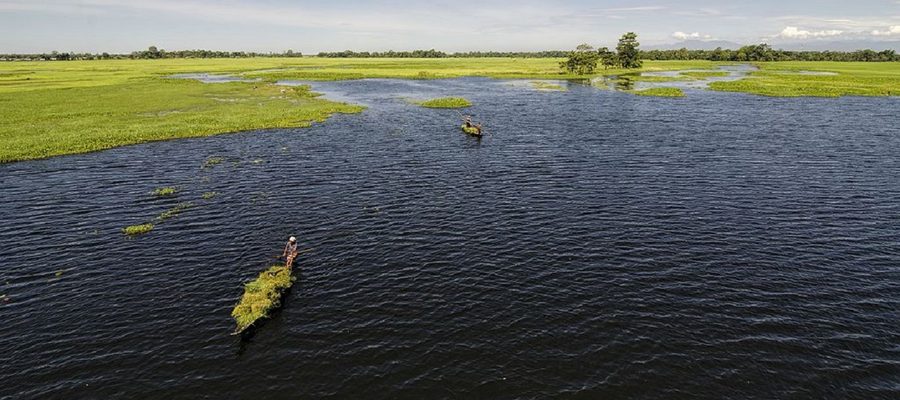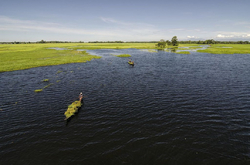Preparation of the nomination dossier of Majuli River Island as a World Heritage Site

Majuli Island is a district located mid-stream in the Brahmaputra River in the state of Assam. Separated from the mainland by 2.5 km the island of Majuli today houses a total of 243 small and large villages. Majuli was recently declared as Assam’s first biodiversity Heritage site and first carbon neutral district.
Majuli has remained the cultural capital of Assamese civilisation since the 16th century when, the social reformer Sankardeva, who preached a form of Hinduism called Vaishnavism established monasteries and hermitages known as ‘sattras’ on the islet.
The island is characterised by varied habitat, heavy rainfall, extremely rich biodiversity, mountains and hills, high seismic activity and a drainage pattern marked by lateral valleys in the north and transverse valleys in the south dissected by major rivers.
The landscape is characterised in geo-tectonic discourse as vulnerable and particularly susceptible to the tectonic hazards posed by plate movements and the hydraulic ebb and flow of the Brahmaputra and its tributaries. Although erosion and flooding is common the inhabitants of the island have demonstrated their ability to adapt to these natural processes which can be seen from their agricultural and cultural practices.
Originally proposed as a world heritage site in 2004, the island is still awaiting being listed as one. ICLEI South Asia has been engaged by the State of Assam to contribute to the preparation of the nomination dossier for natural criteria ix and x of the site. An MoU has been signed by all the parties involved and work has commenced on the preparation of a comprehensive nomination document which will address both the natural and cultural value of the island.




